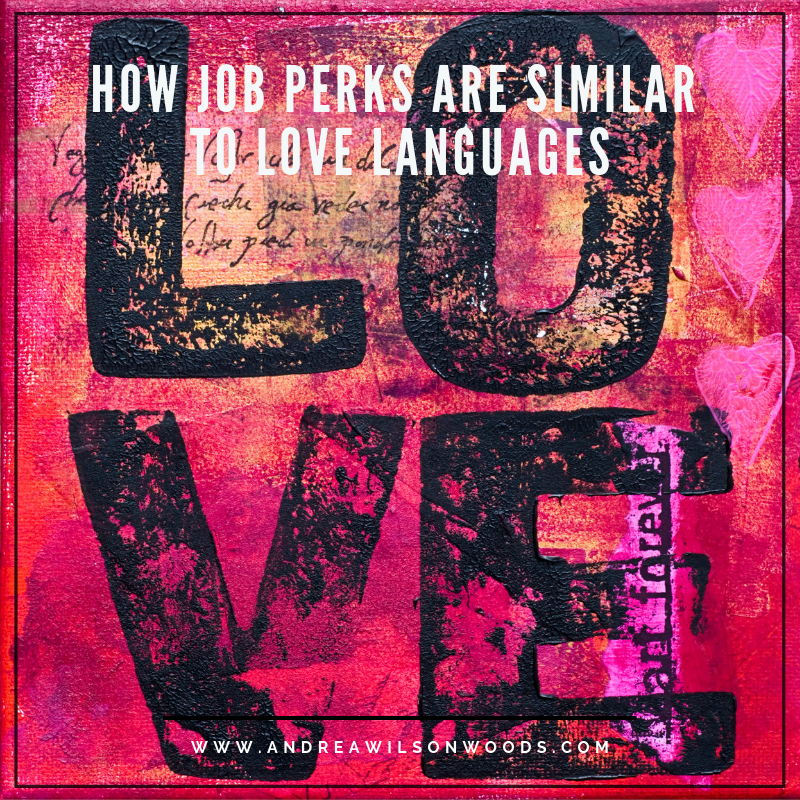How job perks are similar to love languages
During discovery calls, I have people visualize and describe their dreams jobs for me. Recently, when I was asking someone what other types of job perks she desired beyond salary, an analogy popped into my head. Job perks are similar to the five love languages described in Dr. Gary Chapman's book (of the same title).
In Dr. Chapman's book, he explains we have five love languages: physical touch, receiving gifts, words of affirmation, quality time, and acts of service. While you don't need to have the same love language as your partner, you need to know your partner's love language. Often, we treat people the way we want to be treated instead of treating people the way they want to be treated.
Love languages v. job perks
Physical touch has no place in the work environment (The #metoo movement has brought this to light in so many ways!) so ignore that one.
Receiving gifts would be the equivalent of your salary. Is your salary commensurate to the experience, education, and skills you bring to your job? Are you negotiating a raise each year? (In most companies, negotiation is expected!) Is your employer rewarding your worth with money (i.e., salary)? If you don't know your worth, check out Salary.com.
Words of affirmation would be praise. Does your boss tell you when you have done a good job? Many of us have a tendency to acknowledge mistakes and ignore accomplishments even though positive reinforcement goes a long way. Personally, I had to work on this issue. I was fortunate enough to receive training and learn the importance of positive reinforcement while still giving critical feedback.
Quality time would be some sort of mentoring program. Does your boss spend time with you? Is your boss a true leader? Do you look up to her? Is there room for advancement within the company and does the company encourage it? Sara Blakely of Spanx has a fantastic mentoring program in place for her employees.
Acts of service would be things the company does for their employees in addition to salary and typical benefits (e.g., health, vacation, retirement). Does the company celebrate special occasions (e.g., holidays, birthdays, milestones)? Does the company reimburse for professional development including tuition? Does the company provide services for its telecommuting employees such as home office equipment, cleaning services, etc.? MeetEdgar gives their telecommuting employees free maid services!
Just like with love languages, the key is to identify which job perks are most important to you. For example, in the professional space, I am not someone who needs praise per se. (I usually know when I'm doing a good job.) I would prefer the company acknowledge my contributions through salary and additional benefits such as reimbursement for all professional development. So if I were seeking a job, I would ask probing questions during the interview to find out if the employer matches or can work with my desired job perks.
Here's another example. Let's say you are like me and having your boss say "Great job!" doesn't mean much to you. I can almost guarantee your boss likes words of affirmation, which is why she gives out compliments so easily. If she is approachable, you can ask for a quick meeting and say something like, "I really appreciate it when you tell me I'm doing a good job, but it would mean more to me if you served as my mentor so I can progress in my career." (Ideally, these issues would be addressed during the interview process.)
So do you know what your desired job perks are? In multiple studies, people never rank salary as the most important thing when it comes to finding their dream job. There are way more factors than the job perks in this blog post, but if you can identify what job perks you want before you accept a job, you are bound to be much happier in the long run!
What to know your love languages? Take the love language quiz!









